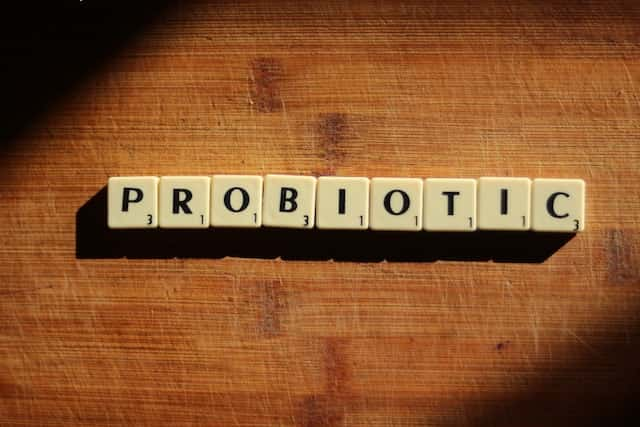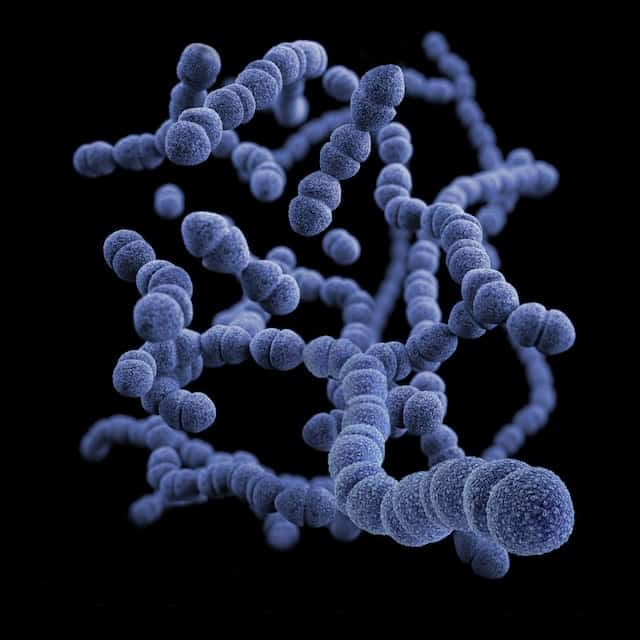The Role Of Probiotics In Maintaining Gut Health
In recent years, probiotics have drawn a lot of attention because of their ability to improve gut health.
The gut microbiota, a term used to describe the billions of bacteria that live inside our gut, is essential to sustaining our general health.
It has been demonstrated that probiotics help to repair and maintain the delicate balance of the gut microbiota and live bacteria.
When taken in sufficient quantities, have positive health effects.
In this article, we’ll discuss the potential role of probiotics in maintaining a healthy gut.
What Will We Learn?
What Are Probiotics?

Probiotics are nothing but live bacteria that can aid in the host’s health when taken in sufficient quantities. These bacteria and yeasts, which are predominantly present in our gut naturally, have beneficial impacts on digestive health.
They aid in preserving healthy gut flora. This is necessary for the digestive system to operate at its best and for overall well-being. Some fermented foods, such as yogurt, kefir, and sauerkraut, as well as nutritional supplements, include probiotics.
Probiotics are essential for keeping a healthy gut and supporting a variety of elements of our health. They enhance immune function, improve gut barrier integrity, and promote microbial diversity.
Understanding The Gut Microbiota

The intricate collection of bacteria that live in our gastrointestinal system is referred to as the gut microbiota. It is made up of many trillions of bacteria, viruses, fungi, and other microorganisms, all of which are essential for sustaining our general health.
Numerous elements, including diet, way of life, heredity, and exposure to the environment, have an impact on the composition of the gut microbiota. These microbes have a direct impact on bodily functions like digestion, immunity, metabolism, and even brain health through their active interactions with one another and human bodies.
An imbalance or disruption in the makeup of the gut microbiota, known as dysbiosis, has been related to a number of health issues, underscoring the significance of maintaining a healthy gut microbiota for overall well-being.
How Probiotics Help In Maintaining Gut Health?
Through the following ways, probiotics contribute to preserving gut health:
- Restoring and Maintaining Gut Microbiota Balance
Probiotics deliver helpful microbes into the gut, helping to restore and maintain a balanced gut microbiota. They can support a healthy microbial community by increasing the number of advantageous bacteria while preventing the growth of dangerous germs.
- Enhancing Immune Function
Probiotics work with the immune system in the stomach to increase immune cell generation and activity. This immune modulation aids in bolstering the gut’s defensive systems, lowering the danger of infections and enhancing immunological wellness in general.
- Improving Gut Barrier Function
Probiotics help maintain the gut barrier’s integrity, which serves as a defense between the gut and the rest of the body. They assist in fortifying the tight connections between cells, inhibiting the absorption of toxic substances into the blood and lowering gastrointestinal inflammation.
- Producing Beneficial Compounds
Probiotics can generate a variety of substances, including short-chain fatty acids (SCFAs), which have anti-inflammatory qualities and replenish the gut lining cells. These substances support a wholesome gut ecosystem and improve overall gut health.
- Digestion And Nutrient Absorption
Some probiotics help with digestion by releasing enzymes that break down food components like lactose and fiber. This may facilitate better digestion and boost nutritional absorption from the diet.
- Metabolic Health
Probiotics have been linked to better metabolic health, including control of body weight, blood sugar levels, and cholesterol metabolism. They could aid in the management or prevention of illnesses like metabolic syndrome, type 2 diabetes, and obesity.
Benefits of Probiotics in Maintaining Gut Health
Here are some benefits of using probiotics to maintain our gut health:
- IBS, or Irritable Bowel Syndrome
Probiotics have demonstrated promise in reducing IBS symptoms such as bloating, stomach pain, and irregular bowel movements. Some strains, like Bifidobacterium infantis and Lactobacillus plantarum, are successful at easing IBS symptoms and enhancing the general quality of life.
- Inflammatory Bowel Disease (IBD)
Research suggests that some probiotic strains, such as Lactobacillus rhamnosus and Bifidobacterium breve, may aid in reducing inflammation and ameliorating symptoms in those with IBD. Especially those with Crohn’s disease and ulcerative colitis.
- Treatment of Antibiotic-Associated Diarrhea
Diarrhea can result from antibiotics upsetting the normal balance of intestinal microorganisms. By restoring microbial balance and promoting gut health while taking antibiotics, probiotics, in particular strains like Lactobacillus rhamnosus GG and Saccharomyces boulardii. They have been proven to decrease the risk and length of diarrhea caused by antibiotics.
- Alleviation of Lactose Intolerance
Lack of the enzyme lactase, which is necessary to break down lactose. It is a sugar you find in dairy products that causes lactose intolerance. Probiotics that contain lactase-producing strains, such as Lactobacillus acidophilus and Lactobacillus bulgaricus.It can aid in the breakdown of lactose and enhance digestion, lowering lactose intolerance sufferers’ symptoms of bloating, gas, and diarrhea.
- Reduction of Symptoms of Functional Gastrointestinal Disorders
Constipation and diarrhea-predominant irritable bowel syndrome are two examples of functional gastrointestinal diseases that can be extremely uncomfortable and disruptive. It has been demonstrated that probiotics, such as Bifidobacterium lactis and Lactobacillus casei, can improve stool consistency. They also control bowel motions and treat gastrointestinal symptoms in certain disorders.
Conclusion
By restoring and maintaining a healthy gut microbiota, boosting immunological response, enhancing gut barrier integrity, and encouraging digestion and nutrient absorption, probiotics play a critical role in preserving gut health.
Probiotics can enhance overall gut health and contribute to greater well-being. When you include them in a healthy lifestyle through dietary sources or supplements. However, before you add probiotics to your daily diet, make sure you consult a professional.
